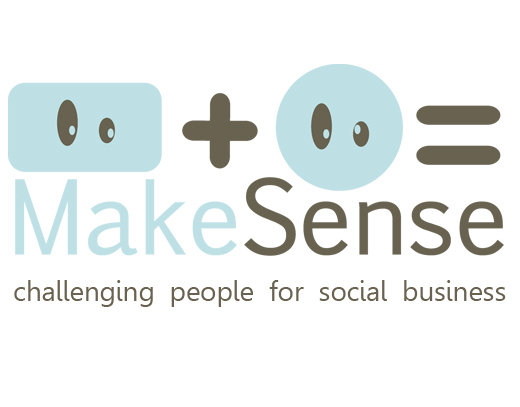 A social business, as conceptualized by 2006 Nobel Peace Prize laureate Professor Muhammad Yunus, is a venture whose mission is to achieve a specific social or environmental goal. This might be to ensure safe drinking water for a community, to provide better nutrition for malnourished children or to promote renewable energy. Supporters invest in the company, not in the hope of making personal gain, but in the hope of sparking positive change in the world. Like any other enterprise, a social business covers its costs and makes a profit (to be reinvested in the company). However, the mark of success is not the size of the profit generated, but rather the company’s social or environmental impact.
A social business, as conceptualized by 2006 Nobel Peace Prize laureate Professor Muhammad Yunus, is a venture whose mission is to achieve a specific social or environmental goal. This might be to ensure safe drinking water for a community, to provide better nutrition for malnourished children or to promote renewable energy. Supporters invest in the company, not in the hope of making personal gain, but in the hope of sparking positive change in the world. Like any other enterprise, a social business covers its costs and makes a profit (to be reinvested in the company). However, the mark of success is not the size of the profit generated, but rather the company’s social or environmental impact.
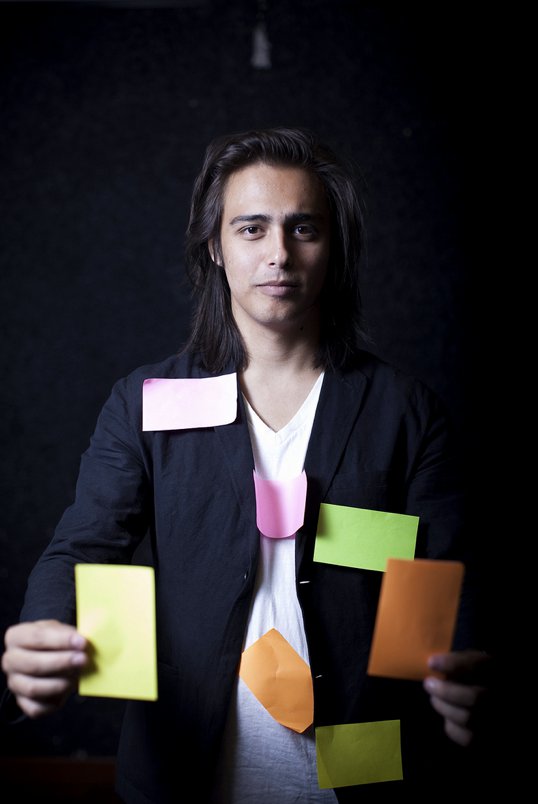 Christian Vanizette, Co-Founder (or “Co-Backpacker”, as he prefers) of MakeSense has caught the social business fever and has ambitious plans to create a pandemic of social entrepreneurship throughout the world. He explains, “I started business school and I was very interested both in the Web and how people collaborate online. We read Professor Yunus’ book on social business, because we were working on a project concerning the creation of a social investment fund. His ideas made us think, “Wow! This is fantastic!” and we realized that there are, perhaps, many Yunuses around the world – and we thought how cool it would be to work with them.”
Christian Vanizette, Co-Founder (or “Co-Backpacker”, as he prefers) of MakeSense has caught the social business fever and has ambitious plans to create a pandemic of social entrepreneurship throughout the world. He explains, “I started business school and I was very interested both in the Web and how people collaborate online. We read Professor Yunus’ book on social business, because we were working on a project concerning the creation of a social investment fund. His ideas made us think, “Wow! This is fantastic!” and we realized that there are, perhaps, many Yunuses around the world – and we thought how cool it would be to work with them.”
From this enthusiasm sprang MakeSense.org, an online platform managed by Christian and his fellow “Gangsters”, which serves to connect social entrepreneurs and their diverse challenges with “Sensemakers” – people who can solve them. Christian and the other Gangsters embrace Professor Yunus’ strict philosophy of working not only out of self-interest but also to help others – and “doing so with joy”.
Here’s an example of how it works: Swayam Bags is a social business in India that designs paper bags made from newspapers. The bags are fabricated by women living in slums and are then sold to large retail stores. Most of the profits are given to the women, granting them increased financial autonomy, while the rest is reinvested in the business in order for it to continue and expand its activities. Swayam Bags has come to MakeSense with a challenge: to find mentors in Marketing. Through innovative advertising, the company could reach more customers, increase its profits and, importantly, augment its women labourers’ incomes. All that is needed now is for somebody with experience in Marketing to visit MakeSense.org, brainstorm a few creative advertising ideas and potentially serve as the missing link that enables Swayam Bags to continue its life-giving work, empowering women in India’s slums. The right connection and a few minutes of somebody’s time have the power to ignite extraordinary change.
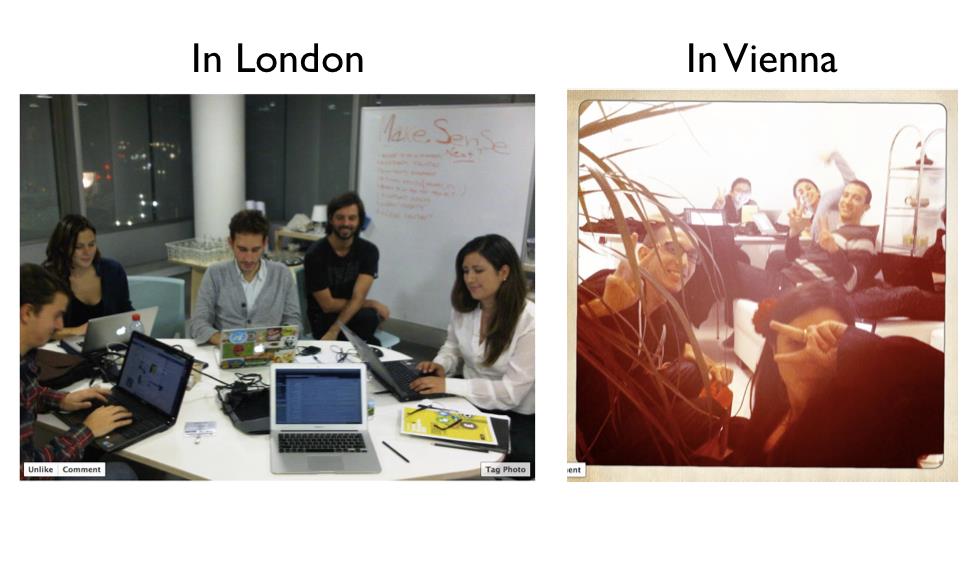 MakeSense has planted over 90 Gangsters across the globe, each entrusted with a sole mission: to seek out other social business visionaries, to identify their challenges, and to introduce them to individuals who can lend a helping hand. Each Gangster joins out of his or her own volition, driven by a personal sense of loyalty to the cause.
MakeSense has planted over 90 Gangsters across the globe, each entrusted with a sole mission: to seek out other social business visionaries, to identify their challenges, and to introduce them to individuals who can lend a helping hand. Each Gangster joins out of his or her own volition, driven by a personal sense of loyalty to the cause.
MakeSense is an open source project, which means, in short, that it is mutually created by a community and is free for all to use—similar to the model on which Linux and Wikipedia are based. Open source projects run on reputation and live by the mantra of “giving credit when credit is due”. Despite the project being free for all to access, it still holds a value and cost for its creators. Sensemakers and Gangsters carve out a reputation from their hard work on the project and only wish to receive credit for it. The MakeSense project evolves through the input of all of its members, and the more you put into it, the more you get out of it – “you scratch my back, I’ll scratch yours”.
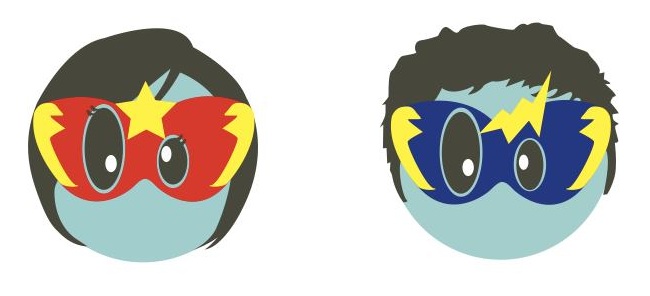 MakeSense’s web application allows for a meritocracy to develop among Sensemakers, thanks to the careful tracking of the challenges they solve. A hierarchy of comic book superheroes emerges to rank each Sensemaker according to his or her contributions to the community. Christian tells us about the organic, self-organizing nature of the project: “MakeSense is open to all, but, as in every open source project, there is a sort of meritocracy that emerges based on what each person contributes to the project—as credit is always given, it is easy to see who is uploading more than they are downloading and vice versa. You have people who are really involved in the project and who give a lot, so they have a very good reputation and are well-known within the project. If they ask for something, the Gang is sure to help them.”
MakeSense’s web application allows for a meritocracy to develop among Sensemakers, thanks to the careful tracking of the challenges they solve. A hierarchy of comic book superheroes emerges to rank each Sensemaker according to his or her contributions to the community. Christian tells us about the organic, self-organizing nature of the project: “MakeSense is open to all, but, as in every open source project, there is a sort of meritocracy that emerges based on what each person contributes to the project—as credit is always given, it is easy to see who is uploading more than they are downloading and vice versa. You have people who are really involved in the project and who give a lot, so they have a very good reputation and are well-known within the project. If they ask for something, the Gang is sure to help them.”
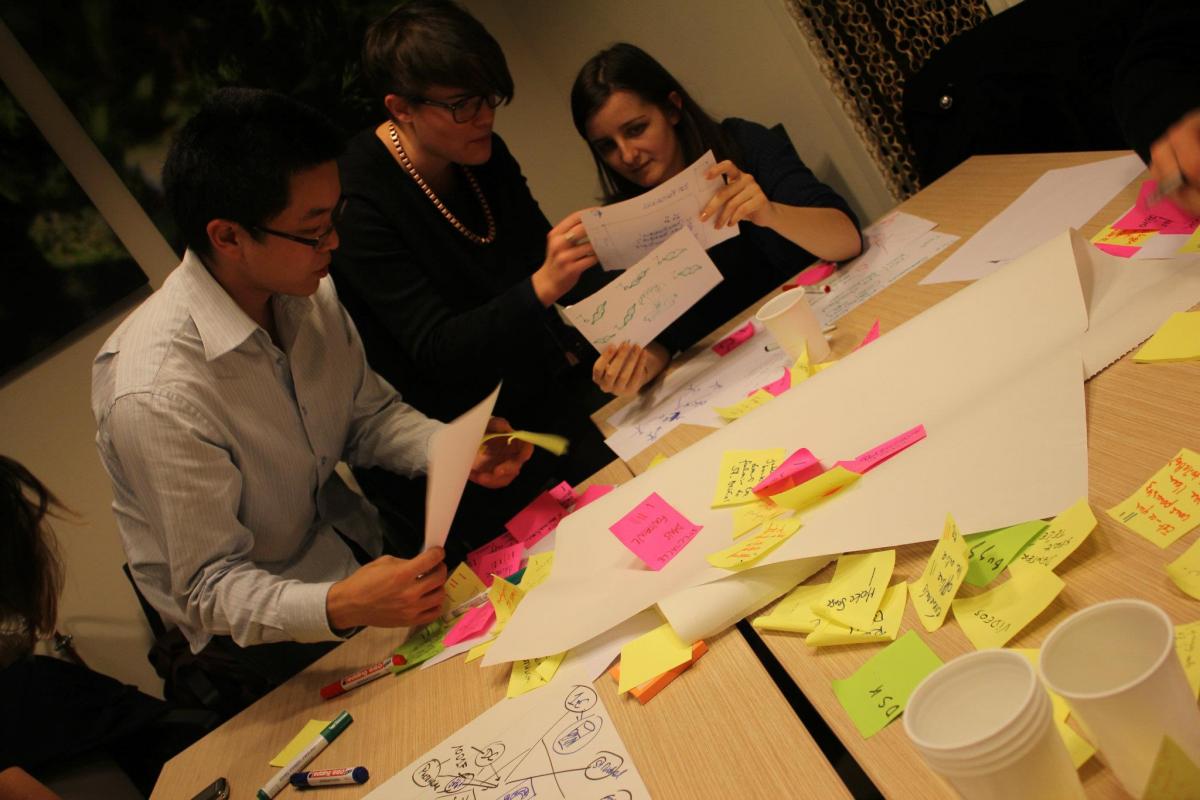 Visitors to the MakeSense online platform who are struck by a challenge that particularly appeals to them are then presented with four ways of getting involved in the movement: 1) “I can help”— the Sensemaker can apply his or her personal skills and expertise to the challenge; 2) “I know someone”— the Sensemaker can refer the social entrepreneur to someone by email; 3) “I can spread the word”— the Sensemaker can talk to his or her entourage about the social entrepreneur’s mission and challenge; or 4) “I can organize a Hold-up”— the Sensemaker can run a brainstorming event around the challenge.
Visitors to the MakeSense online platform who are struck by a challenge that particularly appeals to them are then presented with four ways of getting involved in the movement: 1) “I can help”— the Sensemaker can apply his or her personal skills and expertise to the challenge; 2) “I know someone”— the Sensemaker can refer the social entrepreneur to someone by email; 3) “I can spread the word”— the Sensemaker can talk to his or her entourage about the social entrepreneur’s mission and challenge; or 4) “I can organize a Hold-up”— the Sensemaker can run a brainstorming event around the challenge.
MakeSense spreads the social business virus in two ways: online, through the virtual platform of social entrepreneurs and Sensemakers, and offline, through a series of these real-life “Hold-ups” – two-hour long brainstorming workshops held by Gangsters, often yielding five or six detailed solutions to one social entrepreneur’s specific challenge. Following the open source model, everyone who is interested and dedicated is invited to participate in these exchanges. Results of each Hold-up are later presented in a short video clip and posted to the online platform in order to inspire other social entrepreneurs who are facing similar challenges.
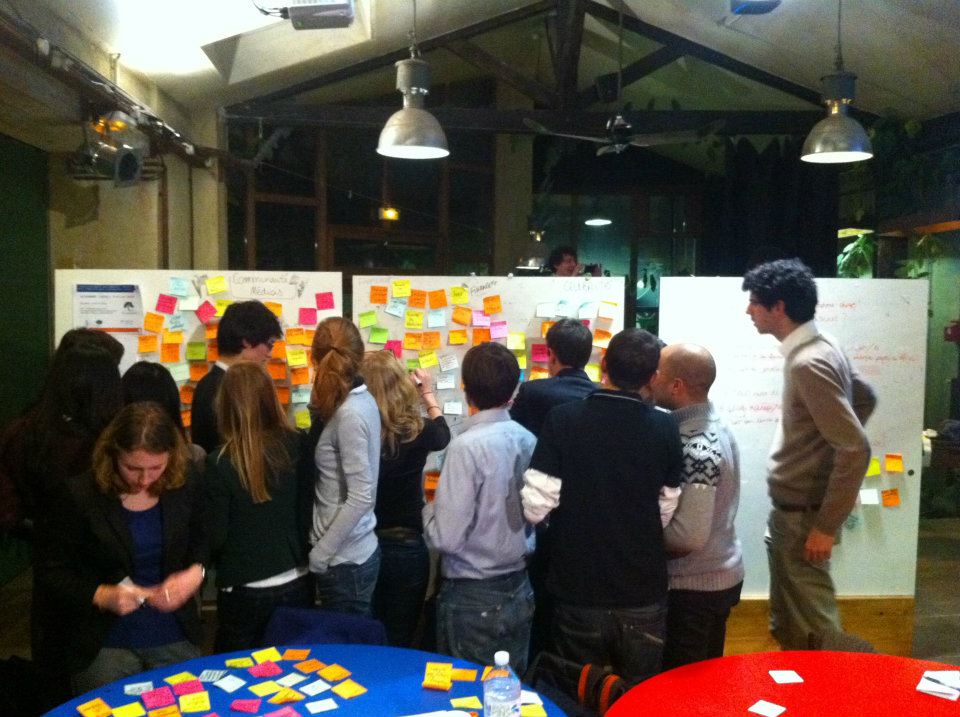 Christian explains that these Hold-ups are “a way to spread ideas and to show that nothing is truly impossible if you put creativity into it— we can all become social entrepreneurs. Even if the concepts developed are not implemented, at the very least the workshops gather more fans for the social entrepreneur and people feel involved in the project.”
Christian explains that these Hold-ups are “a way to spread ideas and to show that nothing is truly impossible if you put creativity into it— we can all become social entrepreneurs. Even if the concepts developed are not implemented, at the very least the workshops gather more fans for the social entrepreneur and people feel involved in the project.”
We invite you to visit MakeSense.org to connect with Christian and other Gangsters and become inspired to jump on the social business bandwagon by contributing, in any way you can, to solving the world’s challenges!
© Women’s Worldwide Web 2012













